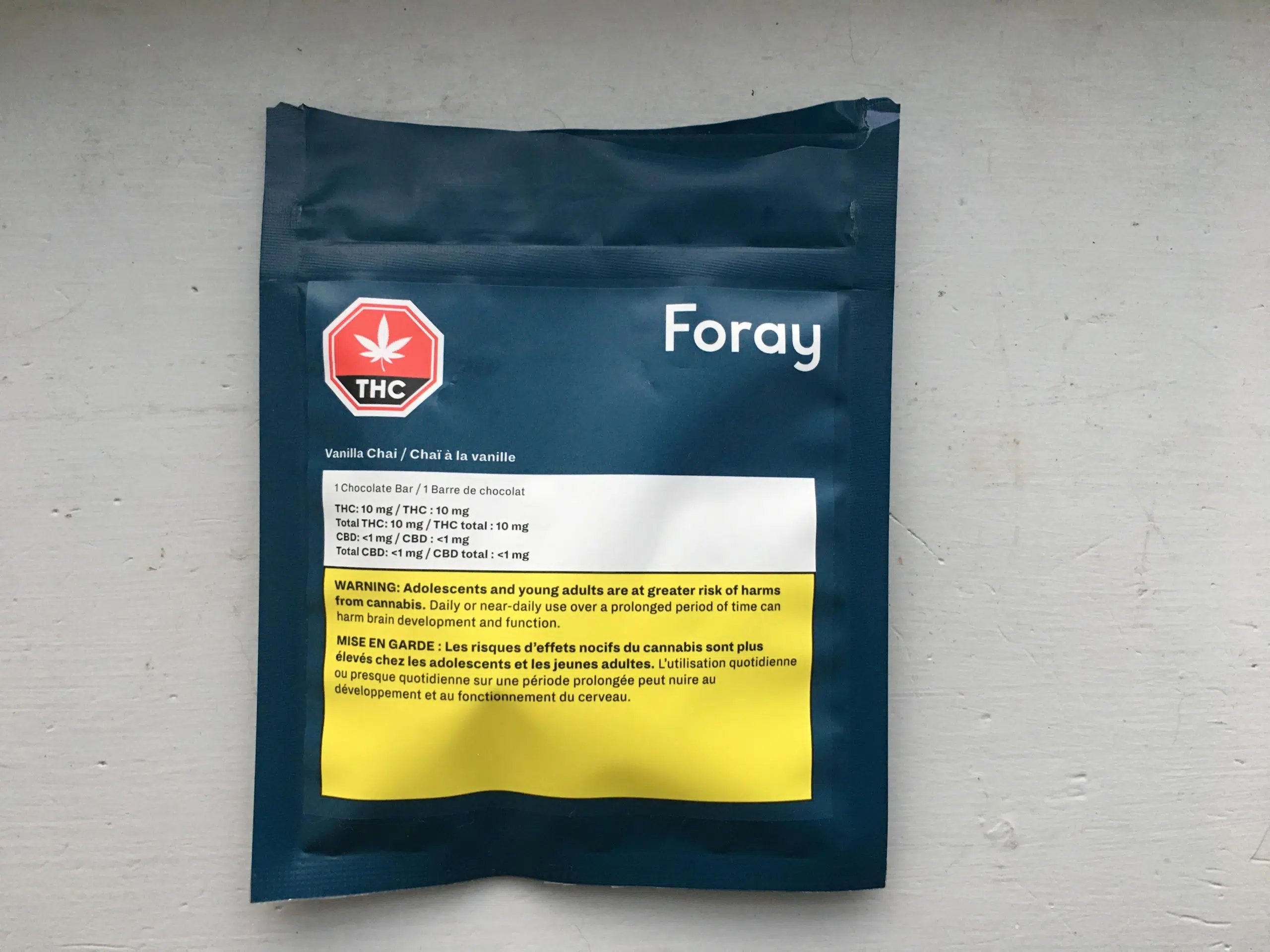
A look at the packaging on a cannabis chocolate bar in New Brunswick. (Danielle McCreadie)
With edible cannabis now legal in Canada and already being sold in dispensaries, health officials are sharing some concerns.
Laurie Mosher, clinical leader of the IWK Regional Poison Centre in Halifax, says the new products have strict regulations around packaging so as to not be enticing to children.
But once out of the package, Mosher says it’s hard to tell the difference.
“There’s virtually no way of telling the difference between a cannabis edible or just a regular cookie or a gummy bear, so that’s a concern for young children or even adults that are not aware that the product has THC in it,” she said.
Mosher says children are more sensitive to the effects of cannabis.
“They’re not regular cannabis users, so they don’t have a tolerance to it, so it’s very easy for them if they ingested a cannabis edible product that they could develop symptoms of toxicity. They could get very drowsy, and it could even slow their breathing down, so it can be potentially life-threatening,” she said.
Other symptoms include irritability, dilated pupils, vomiting and even tremors or seizures.
In 2019 alone, Mosher says the IWK dealt with 12 cases of children ingesting edibles and becoming sick.
“We have seen an increase, not just in children but in adults as well. Since 2016 we basically didn’t have any calls related to edibles in the pediatric population,” she said.
Mosher says children also may not know an item has cannabis in it, which is why it’s important to label products and keep it locked up.
“Never take the edible around the child and don’t call it your medicine. Children don’t understand what that means. The key message is this looks like food, it tastes like food, you can’t tell that it has cannabis in it. Not only do you need to keep it away from the children, you need to lock it up,” she said.
New regulations for edible cannabis came into effect in October 2019, but because federal license holders must provide 60 days notice of their plan to sell the products, there is only a limited selection currently available.
According to Health Canada, edible cannabis will have a cap of 10 milligrams of THC per package while extracts and topicals will have a cap of 1,000 milligrams.



